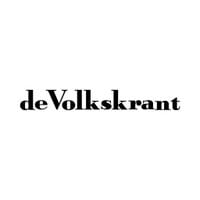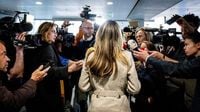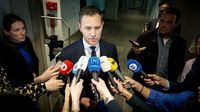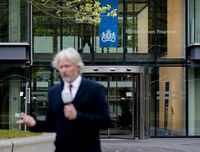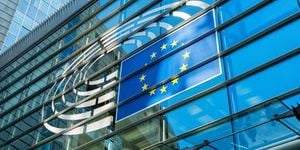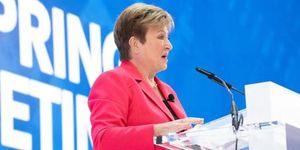After an intense 26-hour marathon meeting, the coalition parties in the Netherlands have reached an agreement on the Spring Memorandum (Voorjaarsnota). Leaders from the PVV, VVD, NSC, and BBB, along with their financial specialists, have been in discussions with Finance Minister Eelco Heinen (VVD) since last Monday, April 7, 2025. While the coalition managed to secure several plans involving tens of billions of euros, the exact funding mechanisms remain unclear.
The Spring Memorandum outlines several key initiatives, including a reduction in energy taxes, a freeze on social rents for 2025 and 2026, an additional €1.1 billion annually for Defense, €600 million for farmers in 2025 and 2026, and extra funds for municipalities. Notably, nearly €900 million will be allocated to asylum reception, a significant investment that has drawn attention from various political factions.
Despite the positive announcements, political reporter Marloes Lemsom highlighted a concerning trend in the coalition's approach. "By presenting only the good news and withholding other details until later, we journalists cannot convey the full story. It’s essentially a public relations show," she remarked. Lemsom pointed out that the coalition leaders were hesitant to discuss the financial implications of their plans, stating, "When asked about funding, they all insisted on maintaining a positive outlook, avoiding any negativity. However, it's crucial for their own voters to understand where they will gain and where they may lose."
Although the coalition has not formally disclosed how these plans will be financed, leaks suggest that income tax reductions may be less than anticipated, which could impact citizens' purchasing power. Lemsom explained, "We’ve heard from coalition sources that the income tax will not be reduced as much as planned, which will be felt in people’s wallets. The general tax credit and labor credit will not be indexed, leading to lower disposable income for many. However, to grasp the complete picture of purchasing power, all information is necessary."
The coalition has presented the sweet aspects of their plans, but Lemsom warns that the bitter details are likely to follow. "Today we’ve mainly heard about the things they are eager to share, immediately followed by social media posts from coalition leaders. However, there are significant issues they are avoiding discussing, such as the additional funding for asylum, which is nearly €900 million and represents one of the largest investments in the Spring Memorandum. This investment is particularly notable because it contradicts previous statements by PVV leader Geert Wilders, who celebrated reduced asylum spending last year. It seems the funds are now deemed necessary," she added.
While the coalition has successfully navigated the immediate challenges of the Spring Memorandum, pressing issues remain unresolved. "It won’t surprise you that the most difficult dossiers, such as nitrogen and climate measures, have been postponed," Lemsom noted. "There was a need for additional funds to address the nitrogen problem, particularly for farmers. The BBB party was pleased to see a significant portion of the funds for farmers disappear, but they have now reluctantly returned to Finance Minister Heinen, acknowledging that more money is needed. However, they will need the other parties to agree to this."
As the coalition parties celebrate their achievements, they are also facing scrutiny from opposition parties. Critics are quick to point out that the coalition is only highlighting the successes of the Spring Memorandum while remaining silent on the costs involved. Frans Timmermans, leader of the GroenLinks-PvdA, criticized the coalition for not sharing the full financial implications of the agreement. "To assess whether the outcome is beneficial for the Netherlands and addresses our significant challenges, the entire package of measures must be presented to the parliament as soon as possible," he stated.
In a similar vein, SP faction leader Jimmy Dijk expressed concern that the coalition is focusing solely on short-term gains. He argued that structural issues, such as housing shortages, rising healthcare costs, and expensive groceries, remain unaddressed. Rob Jetten, leader of D66, echoed these sentiments, emphasizing that defense and energy costs are not receiving adequate attention.
Finance Minister Eelco Heinen (VVD) has reassured the public that all budgetary rules are being adhered to, but he has not provided specifics on how the plans will be funded. He stated, "While there will be additional expenditures, there will also be corresponding cuts elsewhere." He described the negotiations as challenging, with many questions raised, but emphasized that leaving without an agreement was not an option.
Following the marathon negotiations, coalition leaders expressed satisfaction with the outcome. VVD leader Dilan Yesilgöz announced on social media, "It was a particularly long negotiation, but we have reached an agreement." She highlighted that additional funds would be allocated to defense and security, although the financing details remain undisclosed. Other leaders, including Caroline van der Plas from the BBB, celebrated the additional millions allocated for road improvements in Overijssel.
The coalition's agreement on the Spring Memorandum comes at a critical time, as the Council of Ministers is set to discuss the memorandum on Thursday, April 17, 2025. Following this, the budget plans will be submitted to the Central Planning Bureau for assessment and to the Council of State for advice. The European Commission expects to receive the budget plans from all EU member states by May 1, 2025.
As the coalition moves forward, they are also grappling with the implications of the planned increase in VAT on sports, culture, and media, which has now been scrapped, leaving a budget gap of €1.2 billion. This decision was met with criticism from various sectors, leading to the coalition's commitment to seek alternative funding sources.
The coalition's negotiations have highlighted the complexities of balancing fiscal responsibility with social demands. With pressing issues like the nitrogen crisis, climate goals, and asylum funding still looming, the true test of the coalition's resolve will come as they navigate these challenges in the coming months.

